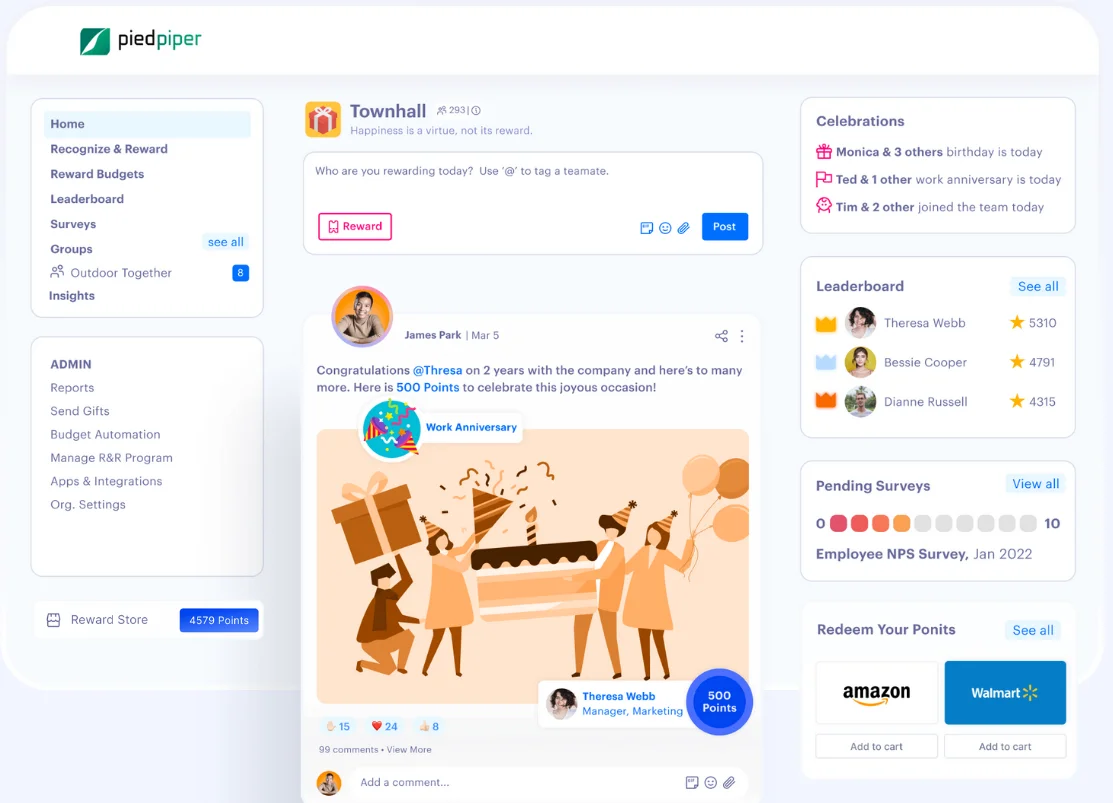Table of Contents
Still wondering why Varun 'Sales-Ninja' Singh ko gussa kyon aata hai?
Your client wanted it YESTERDAY. Your customer needs it NOW! What makes you think your reps, channel agents and vendors will be ecstatic about an incentive package that will materialize only "After 30 days, and kindly adjust for some delays"? Delayed gratification isn't just unfair and unproductive, making these unsound business practises. In the ASAP economy, they are also an anachronism and an anomaly. Can organizations afford to hang on to it? Not for long.
IT'S TIME FOR 'ZERO-TIME APPROACH' TO INCENTIVES
You've heard about Zero-Defect in quality control and Zero-Inventory in production. Now, say Hello to ZERO-TIME. First proposed by Raymond T. Yeh and Keri Pearlson in 1998, the philosophy of ZERO-TIME is, as you may have guessed already, about responding to business and customer needs instantly. Closely related to the concept of AGILE, ZERO-TIME lets businesses earn and retain a competitive edge in the market via a continuous spiral of innovation, testing and deployment, and responding to change and opportunity with zero time lag.
It is generally understood that there are five operational gaps that a team needs to optimize or close, in order to attain the coveted status of a ZERO TIME organization. They are gaps of process, management, learning, inclusion and value. And the X-Factor that can help an organization close these gaps is engagement. Channel agents, sales reps, vendors and indeed, all 'internal and external stakeholders who are truly engaged and aligned with the organizational journey, tend to be more enthused, creative and proactive towards achieving targets and goals. They naturally perform better than their counterparts (who feel marginalized or neglected), letting the business tick its KPI boxes easily.
How does an organization ensure that this group stays highly engaged? Well, research confirms that there's no better way than by closing the time-gap between performance and payout. In other words, to capitalize on business growth with 'zero delay', incentive must also be handed out without a 'waiting period'.
IT'S ALL ABOUT INSTANT GRATIFICATION
Why is instant gratification such a powerful trigger to action (or reaction)? The answer lies in the way our minds are wired. Sigmund Freud first coined the phrase to describe the human subconsciousness, one that is driven by primal instincts (ego, as we normally interpret the term, is a part of this) and prioritizes short term pleasure. While our 'higher minds' kick in when it's time for strategic thinking, our 'gut' and 'instinct' is the part that provides the juice and power when we are in survival, competition or self-assertion mode.
So whether we are trying to meet a tough target, pip peers to that luxury car or foreign trip reward or prove that our rockstar performance last quarter was no fluke, it is our adrenalin that leads the project. And nothing fires up adrenalin quite like the impulse of instant gratification. The latter's connection with dopamine - the body's 'happy neurotransmitter' – is well documented: More on that in a bit.
IT'S HUMAN TO WANT HAPPINESS - SOONER RATHER THAN LATER
Why just distribution agents, sales reps and vendors, though? Whether it's a lot of binge shopping, the need to share our exotic dinner on Instagram or be appreciated for a work that was done well, we are all 'guilty', so to speak, of impulsive behaviour.
Indeed, the trait maps to a very fundamental aspect of our being, which is just as well, because that's also what keeps us gloriously human. We may find bots cute and novel, but would hate to become one ourselves, isn't it?
The impulsive mind is also the reason why Economics – where most theories pivot around the complex algebra of motives and feelings that are available in simpler forms these days, but will never be a fully predictive science.
IS INSTANT GRATIFICATION JUST FOMO IN DISGUISE?
For better or worse, impulsive behaviour has been increasingly defining business approaches, product strategies and consumer experiences. Think about it. Every time you swipe right on Tinder… Opt for BUY NOW instead of ADD TO CART on Amazon... Click SKIP AD on YouTube... Tweet instead of writing that long overdue blog… Declare that 'Tonite's Special Dinner' will be Maggi... what you are really doing is saying, "I don't have the patience!".
These behaviours validate the belief of CXO's that we are living in an economy that has FOMO written all over it.
Replace 'customer' with your channel partners, sales reps, agents and vendors, and the connection suddenly becomes clear. As a cog in a system that runs on the 'please me now' principle, they can't be expected to behave differently. Spokes of the same wheel cannot operate in isolation. Even if they tried, they would only end up being a jarring note in the orchestra.
MO' THAN FOMO
FOMO (the 'Fear Of Missing Out' - a relatively new psychological trend that traces its origin to the rise of an 'always on' culture where not keeping up with the social ecosystem doesn't just make one 'uncool' but may lead to the loss of a potential job opportunity or a serious business connection) may be a fine way to understand why an incentive that is delayed is really an incentive that is denied, but it's not the only explanation.
While patience can be a natural gift, people who are consistently able to display self-control and postpone gratification usually have a master plan or grand vision of life which drives and justifies the behaviour. Without being judgmental about the approach, it can be said that not everyone walks through life with a blueprint like that. Despite how 'meticulous and measured' we would like to believe we are, the truth is that most of us really 'play it by ear' - spontaneously and in real-time. And there's nothing wrong with that.
Wanting to be compensated in real-time is an instinct that can be traced to our cave-man days when the uncertainty of the next lunch added an element of risk to gratification if it was delayed or postponed.
Often, instant incentives are a practical and existential necessity that's linked to survival and livelihood – in other words, stuff which we cannot ignore. For example, many of us exist in a cycle that allows for little credit buffer (bills, rents and EMI's all have to be paid by a certain date): Incentives are accordingly planned into the monthly expense sheet, making delays an unpleasant hiccup.
Age plays its own part in the equation, making younger people more prone to be swayed by the motivation of instant gratification. Having 'gone around the block' so to speak, older folks are often ok with moderating their urges.
Finally, some things are just meant to happen 'in the moment'. A delayed Thank You or a belated Birthday Wish doesn't quite have the same magic to them, do they?
AS ALWAYS, THERE'S A BIT OF BIOLOGY TO IT
Yes, there is a biological rationale supporting the tactic of ensuring that folks get their dues on time. It is the 'feel-good' neurotransmitter DOPAMINE, a chemical in the body associated with the cycle of pleasure, motivation and reward. The brain releases dopamine when it is anticipating a reward or accolade, such as an incentive. Normally, dopamine produces a rush in the brain - apart from generating positivity, alertness and happiness – and can be a great morale booster and performance multiplier.
When the incentive is delayed; however, the result can be the opposite - depression, bitterness and lack of motivation.
Wise leaders know that they need to channelize the power of dopamine to their advantage and ensure efficiency and performance by keeping their channel agents, sales reps and vendors engaged by timely incentives.
INSTANT NIRVANA – THE X FACTOR FOR BUSINESS
Instant gratification may have its naysayers and opposers, but there's much to be said for it from a business point of view.
Instant feedback is the lifeblood of agile workflows, indicating a culture that's open, interactive and healthy.
Anticipating, or demanding, certain things and experiences in a timely manner can point to a disciplined and structured approach to life and work - a stellar virtue to have in the office or extended teams.
Incentives that are dished out quickly can also cement trust. By acknowledging and honouring the service with the credit and compensation that's due, the employer or boss strongly validates the promise made at the beginning of the contract or association; coming across as someone who can be depended upon.
Interestingly, releasing incentives fast can double up as an ingenious 'Test of Ability' too. It gives CXO's and leaders a rare window into the true capabilities and untapped potential of their team members (which can otherwise lie dormant as a resume embellishment), and thus be a strategic instrument in more efficient goal and resource planning.
An incentive that's quickly dispersed puts the zing back into the routine. When delayed, it sucks the joy out of work—big difference.
COMPASS not only allows you to engage your teams towards targets and amp up productivity so that they can reach them faster but also monitors progress accurately at each step so that you can disburse incentives on-time, every single time.
Explore new possibilities by scheduling a DEMO today.




